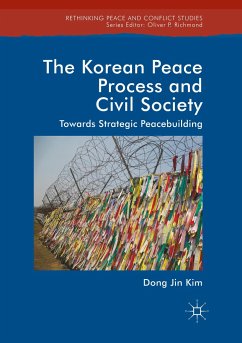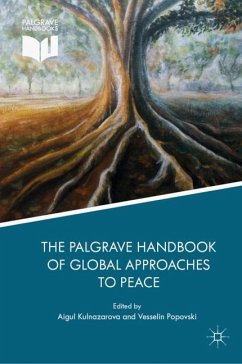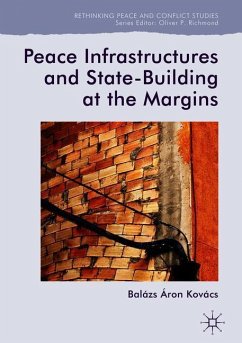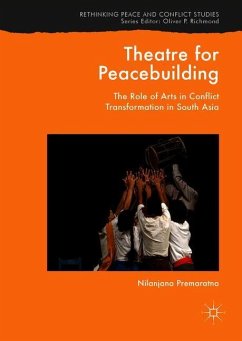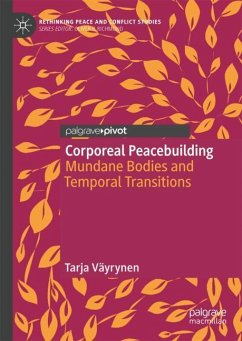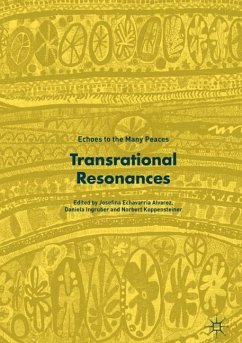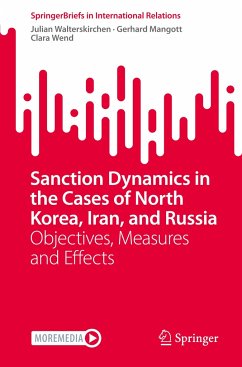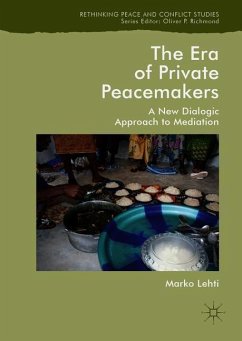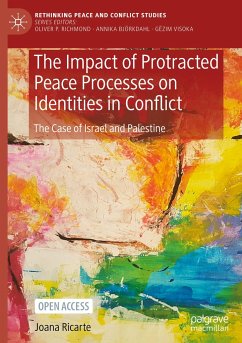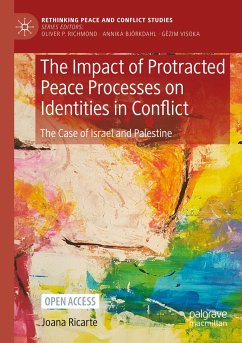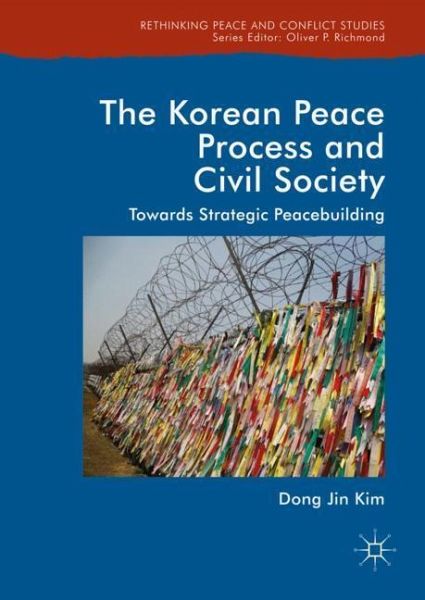
The Korean Peace Process and Civil Society
Towards Strategic Peacebuilding
Versandkostenfrei!
Versandfertig in 6-10 Tagen
53,99 €
inkl. MwSt.
Weitere Ausgaben:

PAYBACK Punkte
27 °P sammeln!
"This is a must-read book for anyone searching for insight into the peace process of the divided Korean peninsula. As a peace researcher and activist, the author highlights the role of civil society in making peacebuilding possible and sustainable on the Korean peninsula. This volume opens a new horizon to the study of peace and conflict." -Koo, Kab Woo, Professor, University of North Korean Studies"This book makes an enormous contribution to our understanding of the dynamics of peace and conflict on the Korean peninsula and expands our understanding of the requirements of sustainable peacebui...
"This is a must-read book for anyone searching for insight into the peace process of the divided Korean peninsula. As a peace researcher and activist, the author highlights the role of civil society in making peacebuilding possible and sustainable on the Korean peninsula. This volume opens a new horizon to the study of peace and conflict." -Koo, Kab Woo, Professor, University of North Korean Studies
"This book makes an enormous contribution to our understanding of the dynamics of peace and conflict on the Korean peninsula and expands our understanding of the requirements of sustainable peacebuilding. The emphasis on the role of civil society as part of an inclusive approach to strategic peacebuilding is especially helpful."-Iain Atack, Assistant Professor in International Peace Studies, Trinity College Dublin
"This expertly crafted book makes an original contribution to understanding peacebuilding theory and the critical role of civil society in strategic peacebuilding. It offers valuable lessons and hope for peaceful transformation of the Korean conflict as well as the negotiation of a sustainable peace in other protracted conflict settings."-Wendy Lambourne, Senior Lecturer, Department of Peace and Conflict Studies, University of Sydney
The Post-Cold War era witnessed a dramatic rise in breakthroughs for peace processes, includingthe Korean peninsula, between parties mired in protracted conflict. However, many such processes broke down within a short period of time. This book explores the possibilities for comprehensive and sustainable peacebuilding strategy in the Korean peace process, beyond reaching an agreement, by reviewing diverse peacebuilding activities from government and civil society.
"This book makes an enormous contribution to our understanding of the dynamics of peace and conflict on the Korean peninsula and expands our understanding of the requirements of sustainable peacebuilding. The emphasis on the role of civil society as part of an inclusive approach to strategic peacebuilding is especially helpful."-Iain Atack, Assistant Professor in International Peace Studies, Trinity College Dublin
"This expertly crafted book makes an original contribution to understanding peacebuilding theory and the critical role of civil society in strategic peacebuilding. It offers valuable lessons and hope for peaceful transformation of the Korean conflict as well as the negotiation of a sustainable peace in other protracted conflict settings."-Wendy Lambourne, Senior Lecturer, Department of Peace and Conflict Studies, University of Sydney
The Post-Cold War era witnessed a dramatic rise in breakthroughs for peace processes, includingthe Korean peninsula, between parties mired in protracted conflict. However, many such processes broke down within a short period of time. This book explores the possibilities for comprehensive and sustainable peacebuilding strategy in the Korean peace process, beyond reaching an agreement, by reviewing diverse peacebuilding activities from government and civil society.





